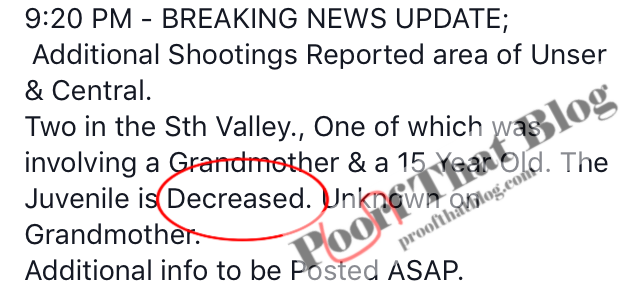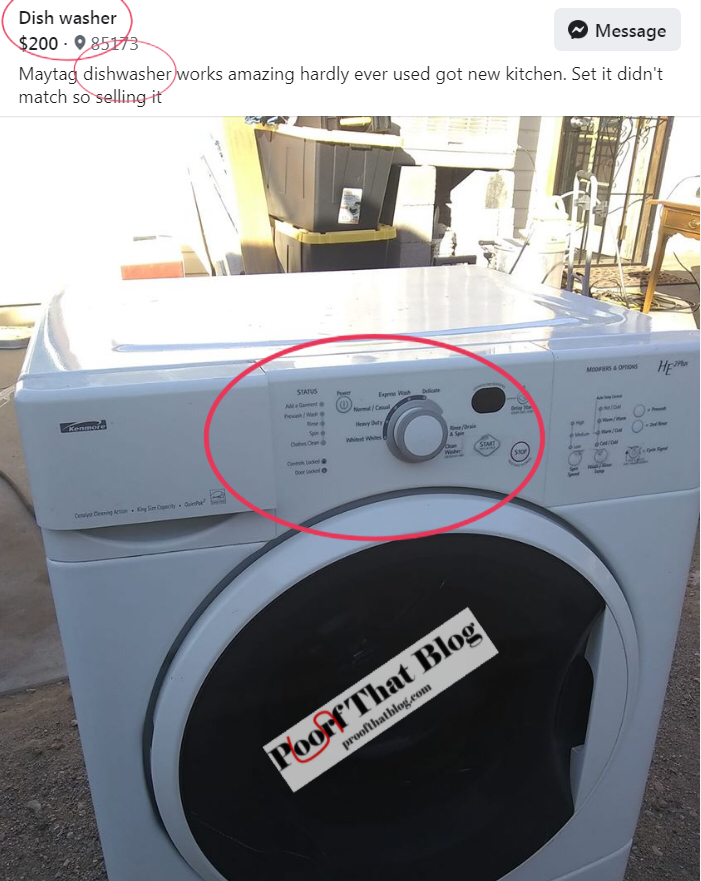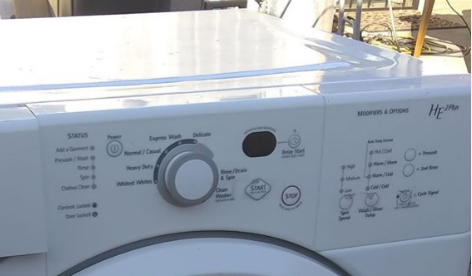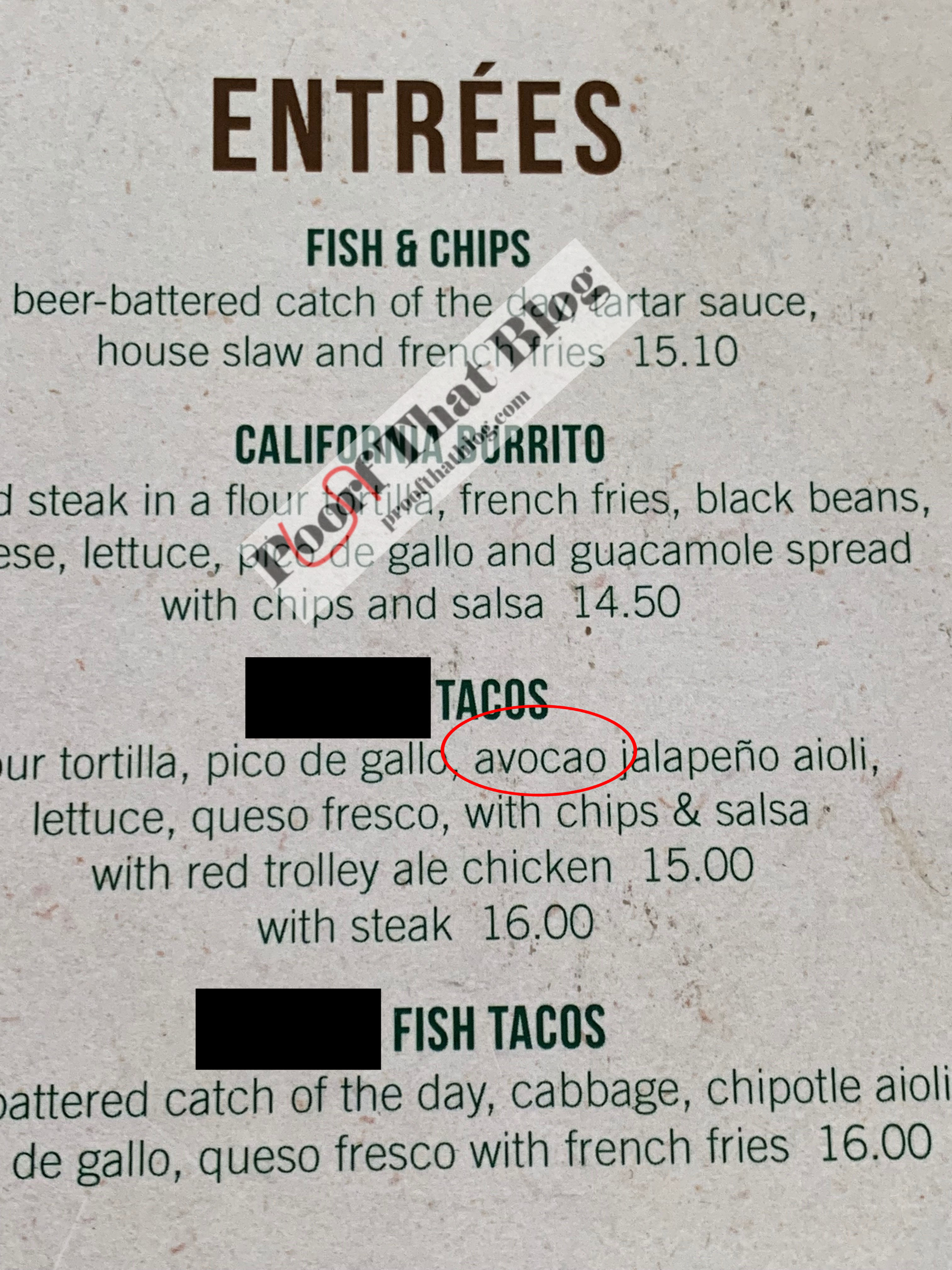This was from a Facebook group that someone sent to me. Again, it is spelled correctly for another word, but is not the correct word in this context.

This was from a Facebook group that someone sent to me. Again, it is spelled correctly for another word, but is not the correct word in this context.

My daughter sent this one to me. It looks like they started writing a sentence, then decided to change it, but didn’t read it before publishing.

I got this email recently. I, of course, checked the return address (which wasn’t Apple), but I already knew that because of all of the errors in one paragraph. It is pretty obviously either translated from a foreign language or a foreign country’s resident’s attempt at English. Whichever it was, I wasn’t fooled!

This was in the information for one of our rotating restaurants in my office building. I guess one out of three is better than three strikes and you’re out!

This was from a local spot that I like to frequent with friends.

Although I suppose this sweatshirt sentiment could be correct, I’m doubtful that there are that many Arkansas girls who love Arizona–although I am sure there are some who love flip flops and wine!

It’s time for “Confusing Words of the Week” where I take a set of two or three words that get confused and give you definitions and try to give you a memory trick to help you remember when to use which word. If you have words that confuse you, use the Ask PTB tab on the website or send an email to proofthatblog@gmail.com and they may appear here soon!

This week’s words are:
Memory tips:
This was in my Facebook Marketplace recently. Not only is “dishwasher” different in each place it is used, but the picture is not even a dishwasher. It is definitely a washing machine . . . for clothes!


I hit the jackpot again at an airport restaurant in San Diego where I found multiple errors in the menu.


Proofreading is everyone’s responsibility. I wondered how often a judge actually makes an error. Unfortunately for judges, I’m pretty sure any error they make is immediately made known and picked up by every legal news source in the country. So be thankful that unless your error is egregious or it is a slow news day, it may not be spread so far and wide!

We’ll start with the U.S. Supreme Court and some examples of errors made. Apparently, there is a website that publishes the corrections that the U.S. Supreme Court has made to correct misspellings, wrong word choices, missing words, and grammatical missteps in Supreme Court opinions. This term, according to the National Law Journal in this ABA Journal article and this Above The Law article, they include:
As much as Court watchers like to point out mistakes, sometimes the U.S. Supreme Court stands by its choices. The word “miniscule” in Justice Stephen G. Breyer’s dissent in Trump v. Hawaii was unchanged. Some think the word should be “minuscule” while others disagree, saying that “miniscule” isn’t the preferred word, but it’s not wrong.
In other courts, sometimes judges or law clerks insert reminders for things they need to follow up on and sometimes those reminders don’t get taken care of. The same can happen in any law office. This is one reason I try to highlight those notes as I see them so that as someone is scrolling through, at least it should make them slow down to see why something is highlighted. U.S. District Judge Gonzalo Curiel filed an opinion on a Motion to Dismiss with what Above the Law describes as “an uncomfortably honest assessment of the underlying research.”

Sometimes the error is not related to spelling or sentence construction, but is an error in numbers. Recently, an Oklahoma judge admitted that he made a $107 million math error in an order for Johnson & Johnson to pay $572 million in the opioid epidemic. The portion of the award devoted to a treatment program for addicted babies should have been $107,683, but in the order said $107,683,000. What’s a few zeroes between friends, eh? The number will be changed in the next version of the order.
Just know that errors happen to everyone but good proofreading skills will hopefully make those errors less likely to happen.